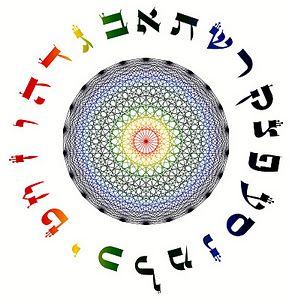Ariel Ben Avraham – Ecclesiastes: The illusion of vanity and the reality of love (XXIII)
“It is good that you should take hold of this, and also from this you shall not withdraw your hand, for he who fears God will discharge himself of them all. Wisdom affords strength to the wise more than ten rulers who were in the city, for there is no righteous man on earth who does goodness and sins not.” (Ecclesiastes 7:17-20)
Acquiring the awareness mentioned earlier is the way to assimilate God’s ways and attributes that arouse our reverence or “fear” of Him. In this knowledge and realization we release (“discharge”) our consciousness from negative attachments, obsessions or addictions that feed ego’s fantasies and illusions. This acquired wisdom leads us to correct our ways as we learn to live in goodness.
“Whoever is wise, let him understand these things. Whoever is discerning, let him know them. For the ways of the Lord are right, and the righteous will walk in them. But transgressors will stumble in them.”
(Hosea 14:9)
Thus we understand that God created evil for us to learn from it in order to always choose goodness, and to realize that sins and transgressions are mistakes that we commit in order to know that in goodness there is no offense, infraction, violation or error.
“Also, take no heed of all the words that they speak, lest you hear your servant curse you. For your heart knows that many times you too cursed others. All this I tested with wisdom. I said, ‘I will become wise’, but it was far from me.” (7:21-23)
Again Kohelet invites us to become wise while we thrive in the contradictions and ambiguities that we find every moment that we have to exercise free will in conflicting situations between good and evil.
“What was, is far off, and very deep [in consciousness], who can find it?” (7:24)
Our wise king taps into the complexities of human consciousness, and sometimes remote causes prompt us by default to act or react without control in certain circumstances. In our unawareness of them we can’t understand their origin or purpose in life.
This does not mean that we can dismiss or justify our misdeeds and negative actions because we are unable to fathom the causes of certain instinctual behavior.
Kochav Yaakov, Shomron (Samaria), Israel Ariel Ben Avraham (f. Zapata) was born in Cartagena, Colombia in 1958. After studying Cultural Anthropology in Bogotá moved to Chicago in 1984 where he worked as a television writer, reporter and producer for 20 years. In the 1990’s he produced video documentaries related to art, music, history and culture such as “Latin American Trails: Guatemala” distributed by Facets.org. Most of his life he studied ancient spiritual traditions and mysticism of major religions, understanding the mystic experience as the individual means to connect with the Creator of all. Since 2004 he studies and writes about Jewish mysticism and spirituality mainly derived from the Chassidic tradition, and the practical philosophy of the teachings of Jewish mystic sages. The book “God’s Love” is the compilation of many years studying and learning Jewish mysticism. The messages of his book are part of the content, exercises and processes of a series of seminars, lectures and retreats that he facilitates in Israel.









